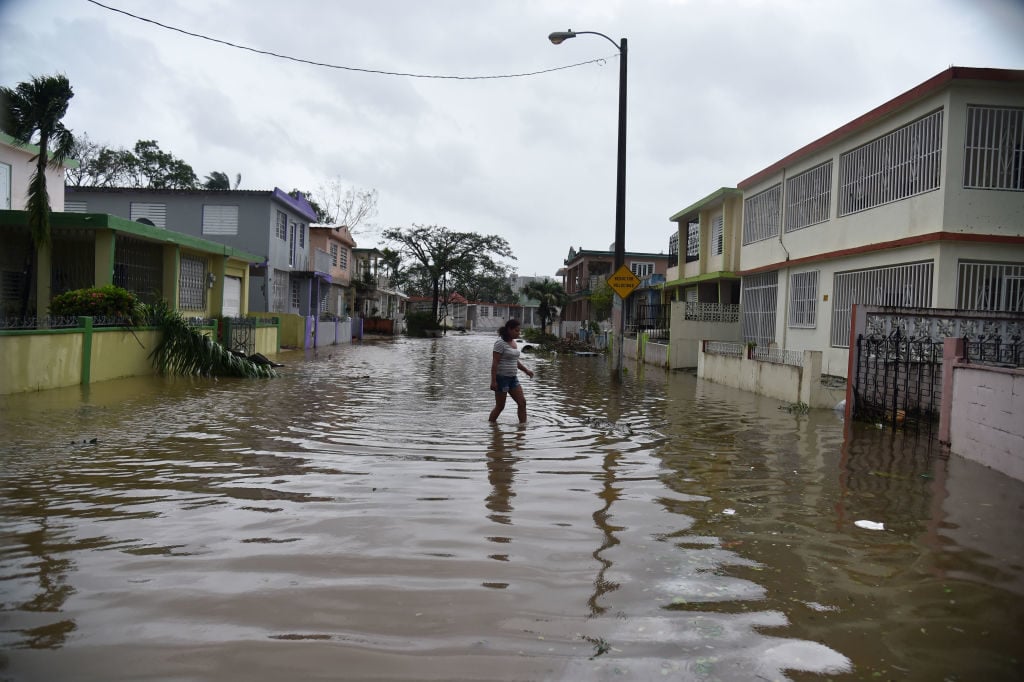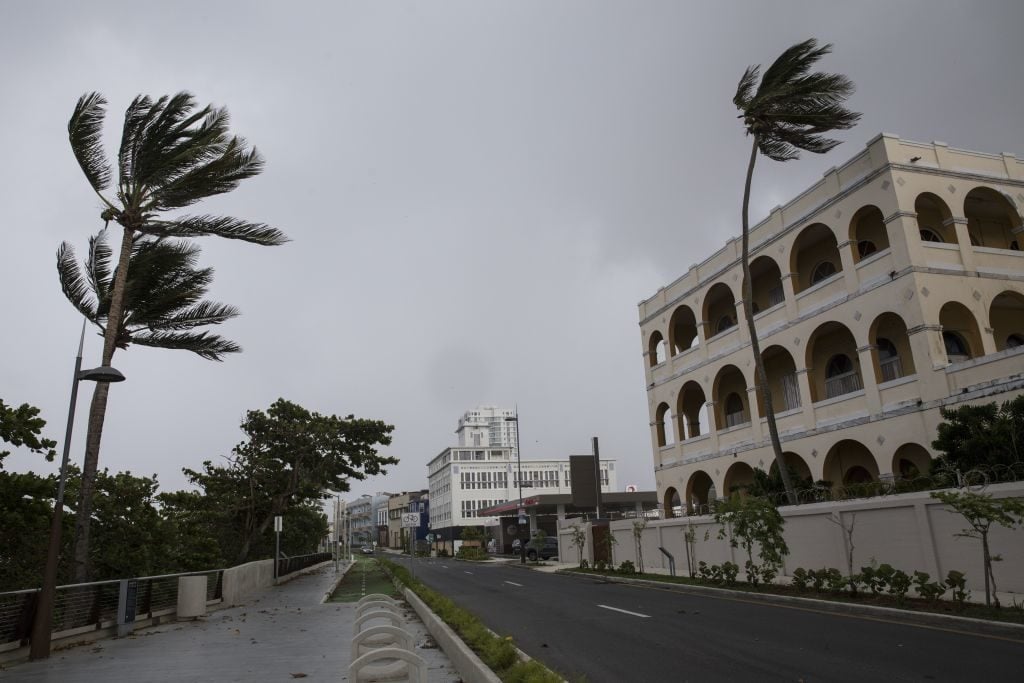Art World
Puerto Rican Art Spaces Are Left Reeling, and Without Power, Amid Relentless Hurricanes
Curators and dealers make a plea for aid to the ravaged island.

Curators and dealers make a plea for aid to the ravaged island.

Sarah Cascone &
Henri Neuendorf

The unusually devastating 2017 Atlantic hurricane season rages on with Hurricane Maria now the worst storm to have hit Puerto Rico since 1928. Reports from the island’s art institutions have been few and far between due to island-wide power outages, but the early reports suggest that artists, museums, and galleries—like the rest of the island—have a long road to recovery ahead.
The Museo de Arte de Puerto Rico in San Juan posted on Instagram on Saturday that the building and collections went unharmed, but that the museum would remain closed until further notice due to safety concerns.
Maria, then a Category 4 storm with 155-mile-per-hour winds, made landfall on Puerto Rico on September 20, knocking out power to the entire island, according to the Washington Post. The hurricane also struck Domenica, Guadeloupe, Martinique, and the US Virgin Islands, and is currently offshore of the continental US, making its way up the East Coast as a tropical storm.
“Hurricane Maria destroyed much of the existing infrastructure and natural resources of the island,” Klaus Biesenbach, director of MoMA PS1 and chief curator-at-large at the Museum of Modern Art in New York, told artnet News in an email. Biesenbach has been active in storm relief efforts since Hurricane Sandy devastated his part-time home and curatorial space in the Rockaways, and he is now turning his attention to Puerto Rico, where he helped organize an internationally attended performance in January. The work, a procession through the jungle by artist Papo Colo, included a stop at Puerto Rican Light (Cueva Vientos), a new Dia commission by Allora & Calzadilla.
“Puerto Rico went through a very difficult and dire financial and infrastructural situation in the last several years, while also having a very promising and vital art scene, strong artists, new art spaces,” Biesenbach added. He has a second climate change awareness-themed march with Colo planned for January.

Storm winds from Hurricane Maria on September 19, 2017, in San Juan, Puerto Rico. Courtesy of Alex Wroblewski/Getty Images.
There is Facebook group for Puerto Rican hurricane support. PS1 will be accepting donations to aid victims through at least October 9.
“It’s a bleak situation on the island right now as Puerto Ricans are currently struggling to cope and survive,” Manuela Paz, co-founder of San Juan’s Embajada gallery, told artnet News in an email. “With regard to art spaces specifically, the conditions vary in degree of damage. We finally received word today that, surprisingly, the damage to our space was minimal, thanks to the metal gate and sturdy building.”
“On a positive note however,” she continued, “many artists and cultural workers both on and off the island have sprung into action with whatever means they can. Those on the island are on the front lines, helping neighbors, friends, and family access water, power, and food… We ask for the international art community to lend a hand in supporting these efforts once they have been established.”
Those willing to help can donate to mariafund.org, a non-profit relief effort run by the community support group Taller Salud.
Puerto Rico is also home to the Museo de Arte Contemporáneo de Puerto Rico (MACPR), the Museo de las Americas, the Museo de Arte de Ponce, and the Museo de Historia, Antropología y Arte at San Juan’s Universidad de Puerto Rico. In addition to museums, the island is also home to galleries including Roberto Paradise, Hidrante, km0.2, and Galerie Petrus, as well as the MECA International Art Fair, which held its first edition earlier this spring.